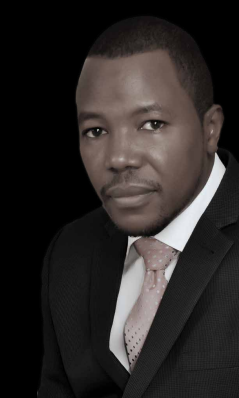There are thousands of conventional bankers who aspire to play a role in the fast-growing Islamic banking industry, but the circumstances in which they find themselves do not make this transition easy. In one case, it took a successful conventional banker with 20 years of experience more than two years to get a suitable comparable position in Islamic banking. This was despite the fact that the said banker had very actively endeavoured to switch to Islamic banking.
Sunusi Saleh Dan-Alhaji, an employee of Access Bank Nigeria, is an interesting example of a conventional banker who is working towards jumping ships when it is right time to do so. With nearly 15 years of conventional banking experience, he is almost there to switch from conventional to Islamic banking, but he is not in a hurry. He does not want to be like many former Islamic bankers who are now working as conventional bankers – many against their preference and others wilfully only in pursuit of green bucks. “For me switching to a career in Islamic banking will be a change in lifestyle,” says Sanusi Saleh Dan-Alhaji. “I shall not like to swing like a pendulum between Islamic and conventional banking.” This is perhaps the best – or second-best approach – given that jobs in Islamic banking and finance do not abound as much as many would like to think.
In Malaysia, for example, many Islamic bankers are required to “help” conventional business of parent banks of Islamic banks. Similarly, global banks frequently ask heads of their Islamic banking and finance to work on conventional banking transactions.
Sanusi Saleh is at present serving as the Sub-Zonal Head of Retail Operations Group for Northeast Nigeria at Access Bank, a leading Nigerian multinational commercial bank. His key areas of expertise include effectively managing profits, personnel, credit and deposit portfolios, recovery management, risk management, and asset liability management. Despite his wide range of experience and extensive experience in banking, he does not think that it will be soon before he gets a suitable job in Islamic banking. A fundamental reason behind this is that Islamic banking is a recent phenomenon in his country, with only one full-fledged Islamic bank – Jaiz Bank – operating in Nigeria. It has yet to grow into a bank of a significant size.
Before joining Access Bank in October 2013, Sanusi Saleh worked for Guaranty Trust Bank (also more popularly known as GTBank) where he started his banking career in 2002.
“I love banking as a profession,” says Sanusi Saleh. “When I understood the religious problems with interest-based banking, I immediately thought of preparing myself for switching from conventional to Islamic banking.” As a starting point, he worked for obtaining Chartered Islamic Finance Professional (CIFP) and successfully completed the qualification. He also attended Islamic Finance Leadership Programme (IFLP) organised by Edbiz Consulting in 2013 at Markfield Institute of Higher Education, Leicester, UK. He is at present working towards becoming a Certified Islamic Specialist in Risk Management, a qualification offered by General Council for Islamic Banks and Financial Institutions (CIBAFI).
Apart from the Islamic banking qualifications, he has received a number of awards and accolades during his 15 years banking career. These include Merit Award of Excellence from the Institute of Industrialist and Corporate Administrators (IICA) in 2012; NYSC Certificate of Exemplary Performance, which he received on completion of his one-year National Service; Long Service Award from GTBank in 2012; and Certificate of Exceptional Profitability from GTBank in 2004.
Sanusi Saleh graduated from the Abubakar Tafawa Balewa University, Bauchi in 1999 with a Bachelor of Engineering (Electrical & Electronics Engineering), and later obtained a Master of Business Administration (Finance and Investment) from the Bayero University, Kano.
He is very fluent in Hausa, English and Arabic languages.
With such strong academic credentials, industry experience and desire to be part of Islamic banking and finance industry, we hope that Sanusi Saleh Dan-Alhaji will one day be able to work for an Islamic financial institution of his choice.




